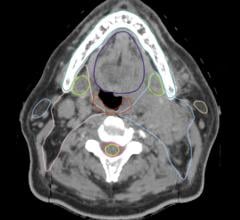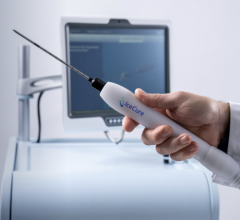
March 15, 2017 — A new study in the journal Chest determined that a structured prescreening counseling and shared decision-making visit with healthcare professionals leads to a better understanding of the benefits and risks of low-dose computed tomography (CT) lung cancer screening. The study found this also improved understanding of the eligibility criteria.
Lung cancer screening using an LDCT scan can be a lifesaving test for high-risk patients. While it offers clear benefits, incidental findings and radiation exposure mean there are some potential risks associated with yearly screening. Most patients do not fully understand the benefits or potential harms of a screening program, nor are they clear on exactly who should undergo testing.
Lung cancer screening is recommended for anyone over the age of 55 who has smoked for more than the equivalent of 30 pack-years. Pack-years are calculated by multiplying the packs per day smoked by the number of years someone has been a smoker. Current evidence suggests that the benefits of lung cancer screening for this population outweigh the risks, but practitioners also recognize that there is a balance, and much of the success of screening programs is tied to their implementation.
"Screening presents a unique challenge to this balance as a minority of patients screened will experience the benefit while all have the potential to be harmed," explained lead investigator Peter J. Mazzone, M.D., MPH, FCCP, director of the Lung Cancer Program for the Respiratory Institute and the Lung Cancer Screening Program, Cleveland Clinic, Cleveland, Ohio. "All patients are presumably healthy at the time of screening. In addition, the fulcrum of this balance shifts based on how an individual patient values each side of the balance."
During this study, investigators designed a program that involved a counseling and shared decision-making visit for patients prior to starting lung cancer screening. These visits were divided into different educational components focusing on eligibility requirements, the benefits and harms of lung cancer screening, and the personalized benefit and risk for each participant. Patients were encouraged to ask questions during sessions.
After analyzing pre- and post-visit surveys, investigators found that participants initially had a very modest understanding of the eligibility criteria, benefits and harms of screening. After viewing educational materials and participating in the shared decision-making process with the practitioner, follow-up surveys showed patients had a better grasp on the nuances of screening.
"We found a generally poor level of understanding of the eligibility criteria, benefits and harms of screening upon entry into the program," stated Mazzone. "This understanding improved substantially after the visit at the time of the decision about whether or not to proceed with screening. Patients generally felt the messages were delivered at an appropriate level and felt more comfortable about their decision after the visit."
The study showed that people started with a better understanding of the benefits of lung cancer screening than the harms or eligibility criteria. Researchers theorize this is because healthcare providers are more comfortable discussing the benefits of screening than trying to convey the complexities of potential harm. Patients with a lower level of education were also less likely to understand the concepts pre- and post-visit but did show benefit from the counseling sessions, leading investigators to recommend exploring strategies to enhance the teaching tools used for people with the lowest education levels.
Medicare and Medicaid already require a counseling and shared decision-making visit before lung cancer screening, but the impact and effectiveness of these sessions are not fully understood. "This is the first study to show that this visit can improve a patient's understanding of lung cancer screening, allowing them to make a decision about participation that fits their values," noted Mazzone. "The Centers for Medicare and Medicaid Services' (CMS) mandate for a counseling and shared decision-making visit has been present for just the past two years. As programs are being developed, it is important that they understand the value of this visit. Also, since CMS pays for this visit, it is important to prove that there is value."
The findings demonstrated that knowledge gained during the visit wanes over time, suggesting additional value to a shared decision-making visit prior to each annual screen. "This would also provide an opportunity to reconfirm eligibility, deliver additional smoking cessation counseling when needed, and build a stronger patient-provider relationship. Information about personalized risk has been shown to help patients make more informed choices about participation in screening for other cancers. This portion of our visit may have contributed to the increased level of comfort with the decision to pursue lung cancer screening expressed by our patients," concluded Mazzone.
For more information: www.journal.publications.chestnet.org


 April 17, 2024
April 17, 2024 








